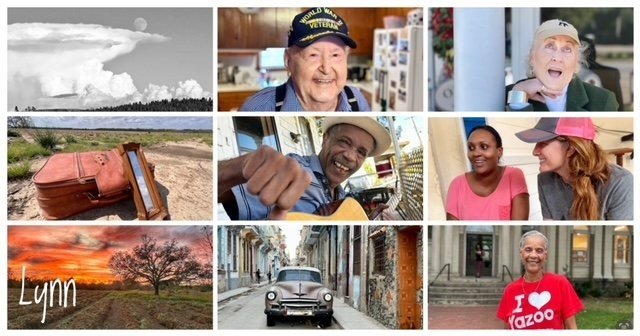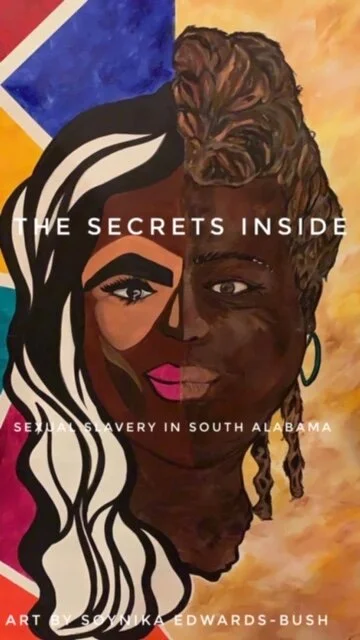Empty Spaces Where the People Used to Be
"The sidewalk is still warm from where the people used to be," is one of my favorite lines from songwriter Ross Newell and the imagery haunts me.
Every day a stranger comes into my life. We have a conversation that changes me in some way and then they disappear like we never met. Just an empty place where they used to be. What if I had been there a minute sooner or later and missed them? Or missed them because I wasn't paying attention.
Today the sidewalks in Mobile were full of stories. A veteran of the USS Midway in town for a reunion with the rest of his crew that is still alive. He says they didn't see active duty, but loaded atomic bombs onto a ship that wasn't supposed to have them. Close by, girls in dresses take graduation pictures celebrating undergraduate degrees before moving on to physical therapy and medical school.
A woman calls out to me, "You're mighty tall. Don't feel bad. I am 'undertall' but I had to be a witchy-b woman when I was working in a man's world."
The "witchy-b" is Lynn Anderson, who started the Waggy Tail in Daphne and was executive director of the Baldwin County Humane Society for 17 years. She has sang at Carnegie Hall with the Presbyterian Church choir and went scuba diving off the coast of a Pacific Island with Philippe Cousteau. She is a proud descendent The Dancing Ghost of Grancer Harrison, a grandfather who made the best corn liquor in Alabama, and a great great grandmother who was the "biggest madam in the whole damn county." She has lived a "wonderlife" and wants to board a ship at the docks and "stay on it and go everywhere around the world until I die."
Her hand holds a keychain with a silver sailboat. It is not just a symbol of her dreams but a reminder that "we are boats in the night, passing and nodding and never getting to know who we are nodding at. I want to know who I am nodding at."
The last person I met today is John Young. It started as a picture for Faces of Mobile and turned into a story about the killing of black women that he said I have to help him tell. He gives the numbers. Five women have been killed in this year. 15 since Michael Moore was killed in June 2016.
"We aren't having honest conversations about this," he says. "We are all acting like these killings are normal. This isn't normal and we have to speak out about black men killing black women. You are going to help me tell the stories of the women who died."
Young is speaking out, even if he feels like he is the only one. Yesterday he walked more than three miles in protest wearing a sign that said "Black Men Please Put Down you Guns."
"Did you know a 15-year-old girl was shot and killed last week?" he asks. "There was no outrage, no marches, no protests. How can this happen? We have to start telling the truth about what is going on in Mobile. Solving this starts at home."
I didn't know about the death of Anesa Baker, one of five teens shot at an Easter concert at The Grand Hall. She died ten days later in the hospital and was laid to rest on Tuesday. 15 years old and shot at an Easter concert that was supposed to be a safe place for kids the same age as my two boys. Young is right. Where is the outrage?
When I was later buying Peanut M&Ms at CVS, I asked the two women working the registers about the killings. They told me heartbreaking stories of other women who were murdered and they said I am lucky that I don't know the fear that black women live with every day but it is time for other people to know.
Each of these victims is a friend, sister, mother or daughter, not a statistic. They had dreams and talents they were supposed to use in this life. Their stories need to be told.
This is more than boats passing in the night. We can't accept the empty places where these women used to be.






